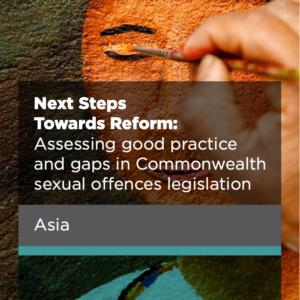Singapore’s sexual offences laws are in the Penal Code 2008 (PC) as amended by the Criminal Law Reform Act 2019 (CLRA). The Evidence Act 1997 (EA) contains the evidentiary rules for all criminal offences.
In May 2019 the CLRA was passed by parliament, which made some important amendments to sexual offences in the PC including removing marriage as an explicit defence or exception to a charge of rape and adding specific child sexual offences covering sexual touching and sexual communication with a child. Sexual grooming of a minor under 16 was already an offence under the PC.
While the reforms are positive, there is still a significant gap between many of Singapore’s sexual assault provisions covered in this research and good practice standards. Importantly, despite the removal of the marital rape exemption there is still no express criminalisation of marital rape in the legislation. Additionally, the requirement for corroboration and evidence of a complainant’s prior sexual conduct are not expressly excluded by legislation, ‘consent’ is not expressly defined as free and voluntary agreement to sexual activity, and the legislation does not make clear that evidence of resistance to the assault, such as physical injuries to the body, is not necessary to prove that sexual activity took place without consent. The defence of consent is available to child sexual assault offences if the offender was married to the complainant at the time of the offence and there was consent. Singapore’s legislation does not have a close-in-age exemption to avoid criminalising young people and children who engage in consensual sexual activity with their peers (e.g. a 16-year-old with a 15-year-old without any coercion or exploitation). The age of consent in Singapore for opposite-sex sexual activity is 16 years outside of marriage.
Same-sex sexual activity for women was decriminalised in 2007, but consensual same-sex sexual activity for men remained a criminal offence under Article 377A of the PC until 2022, when the Parliament of Singapore voted to repeal to the criminalising provision.
Singapore provides for corporal punishment for some sexual offences (e.g. rape), which is inconsistent with good practice. Singapore is a state party to relevant international human rights treaties, including the Convention on the Elimination of All Forms of Discrimination against Women, Convention on the Rights of the Child, Convention on the Rights of Persons with Disabilities. Singapore has not joined the Convention against Torture and Other Cruel, Inhuman or Degrading Treatment or Punishment or International Covenant on Civil and Political Rights.
The full assessment of Singapore is available here.



